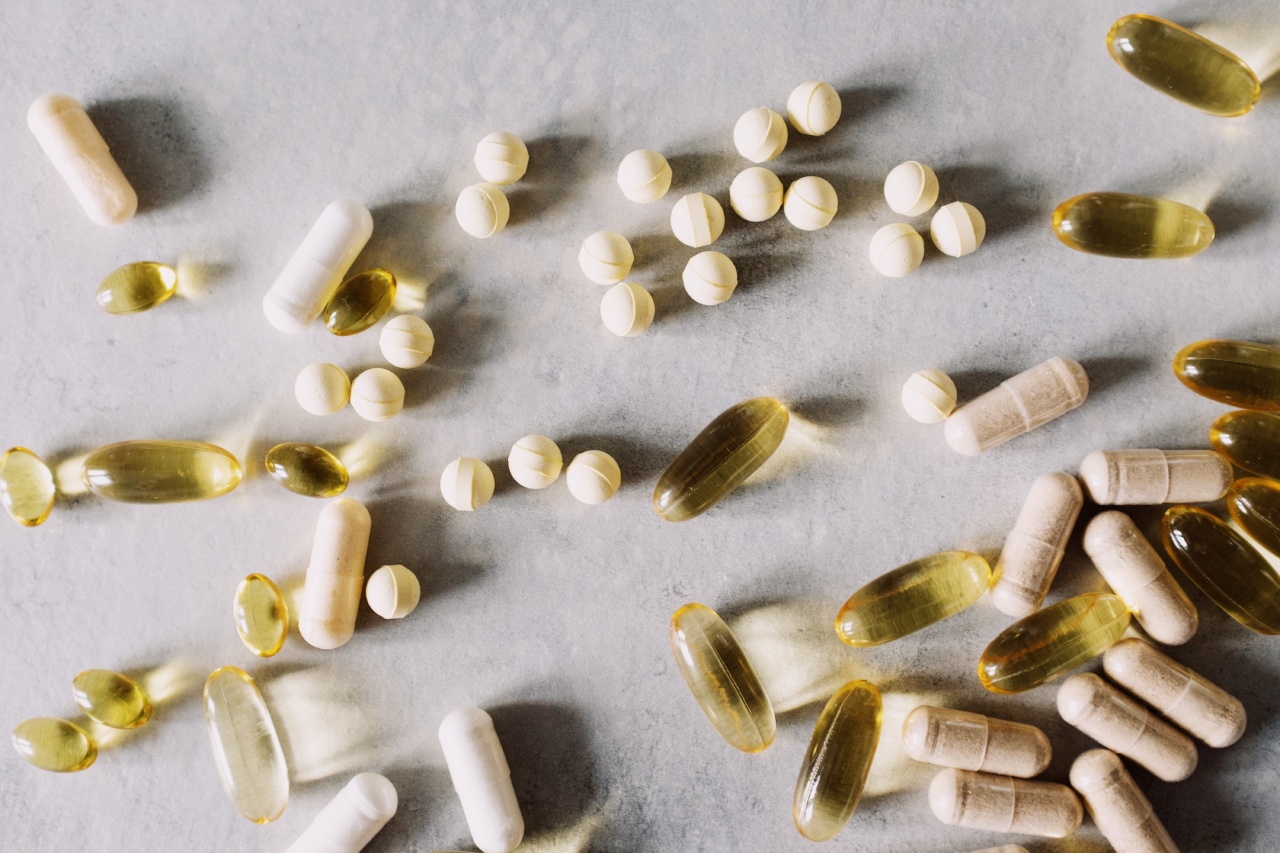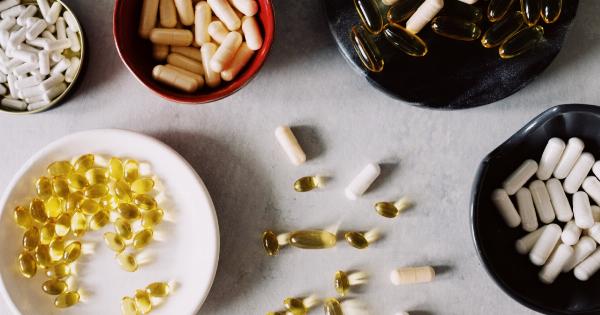Attention deficit hyperactivity disorder (ADHD) is a neurodevelopmental disorder that affects both children and adults. It is characterized by symptoms such as inattentiveness, hyperactivity, and impulsivity.
While ADHD is typically managed through therapy and medication, recent research suggests that consistent nutrition can also play a crucial role in improving mild symptoms of ADHD. This article explores the relationship between nutrition and ADHD and highlights the key findings from relevant studies.
The Impact of Nutrition on ADHD
ADHD has often been associated with deficiencies in certain nutrients, such as omega-3 fatty acids, iron, zinc, magnesium, and B vitamins.
These nutrients are involved in various brain functions, including neurotransmitter production, neural signaling, and overall brain health. Research has shown that deficiencies in these nutrients can exacerbate ADHD symptoms and impair cognitive function.
Omega-3 Fatty Acids
Omega-3 fatty acids, particularly Docosahexaenoic acid (DHA) and Eicosapentaenoic acid (EPA), are essential for brain development and function.
Studies have found that individuals with ADHD tend to have lower levels of these fatty acids, which may contribute to their symptoms. Increasing the intake of omega-3 fatty acids through diet or supplementation has shown promising results in reducing ADHD symptoms, including improved attention span and reduced hyperactivity.
Iron and Zinc
Iron and zinc are involved in the synthesis of neurotransmitters that regulate mood and attention. Deficiencies in these minerals have been linked to ADHD symptoms, such as impulsivity and inattention.
Research has found that supplementing with iron and zinc can lead to significant improvements in ADHD symptoms, particularly in children with low iron levels. However, it is important to consult with a healthcare professional before starting any supplementation.
Magnesium
Magnesium is essential for proper nerve function and neurotransmitter activity. Studies have shown that individuals with ADHD often have lower levels of magnesium compared to those without the disorder.
Supplementing with magnesium has been found to improve hyperactivity, impulsivity, and inattention in children with ADHD. Additionally, magnesium supplementation has been shown to enhance the effectiveness of ADHD medications.
B Vitamins
B vitamins, including vitamin B6, B9 (folate), and B12, play a vital role in brain health and neurotransmitter production. Deficiencies in these vitamins have been associated with ADHD symptoms.
Research suggests that supplementing with these B vitamins can help reduce symptoms of ADHD, including improved cognitive function and reduced hyperactivity.
Dietary Recommendations for ADHD
In addition to specific nutrients, adopting a balanced and nutritious diet can also have a positive impact on managing ADHD symptoms. Here are some dietary recommendations to consider:.
1. Increase Intake of Whole Foods
Whole foods, such as fruits, vegetables, whole grains, lean proteins, and healthy fats, provide essential nutrients that support brain health and overall well-being.
Emphasize the consumption of these foods and minimize the intake of processed and sugary foods, which can exacerbate ADHD symptoms.
2. Include Protein in Every Meal
Protein helps stabilize blood sugar levels and provides a steady release of energy throughout the day. Include protein-rich foods like lean meats, fish, eggs, legumes, and nuts in every meal to help improve focus and concentration.
3. Limit Food Additives and Artificial Colors
Some food additives and artificial colors have been linked to increased hyperactivity and impulsivity in individuals with ADHD.
It is advisable to avoid foods containing artificial additives, preservatives, and colors, especially in those diagnosed with ADHD.
4. Avoid Food Sensitivities and Allergens
Food sensitivities and allergies can worsen ADHD symptoms in some individuals. Common allergens include gluten, dairy, soy, and artificial additives.
If you suspect any food sensitivities, consider an elimination diet or consult with a healthcare professional for guidance.
5. Hydration is Key
Dehydration can negatively impact cognitive function and exacerbate ADHD symptoms. Encourage regular water intake throughout the day to maintain optimal brain function.
The Role of Supplementation
While it is possible to obtain essential nutrients through a balanced diet, some individuals may benefit from targeted supplementation.
However, it is crucial to consult with a healthcare professional before starting any supplementation, as individual needs may vary.
Conclusion
Research indicates that consistent nutrition can have a positive impact on mild ADHD symptoms. Nutrients such as omega-3 fatty acids, iron, zinc, magnesium, and B vitamins play a crucial role in brain health and neurotransmitter function.
By adopting a balanced diet, increasing the consumption of whole foods, and considering targeted supplementation under professional guidance, individuals with ADHD may experience improvements in attention, mood, and overall well-being. However, nutrition should be seen as a complementary approach to other recommended ADHD therapies, and any dietary changes should be discussed with a healthcare professional.




























